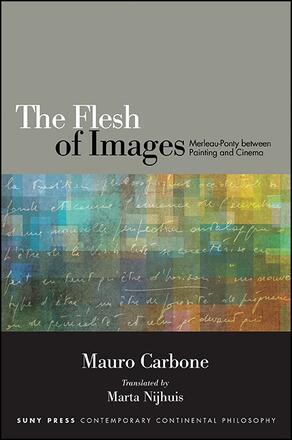
The Flesh of Images
Merleau-Ponty between Painting and Cinema
Alternative formats available from:
Highlights Merleau-Ponty’s interest in film and connects it to his aesthetic theory.
Description
In The Flesh of Images, Mauro Carbone begins with the point that Merleau-Ponty's often misunderstood notion of "flesh" was another way to signify what he also called "Visibility." Considering vision as creative voyance, in the visionary sense of creating as a particular presence something which, as such, had not been present before, Carbone proposes original connections between Merleau-Ponty and Paul Gauguin, and articulates his own further development of the "new idea of light" that the French philosopher was beginning to elaborate at the time of his sudden death. Carbone connects these ideas to Merleau-Ponty's continuous interest in cinema—an interest that has been traditionally neglected or circumscribed. Focusing on Merleau-Ponty's later writings, including unpublished course notes and documents not yet available in English, Carbone demonstrates both that Merleau-Ponty's interest in film was sustained and philosophically crucial, and also that his thinking provides an important resource for illuminating our contemporary relationship to images, with profound implications for the future of philosophy and aesthetics. Building on his earlier work on Marcel Proust and considering ongoing developments in optical and media technologies, Carbone adds his own philosophical insight into understanding the visual today.
Mauro Carbone is Full Professor of Philosophy at the University of Lyon 3 and a senior member of the Institut Universitaire de France. His books include An Unprecedented Deformation: Marcel Proust and the Sensible Ideas (translated by Niall Keane), also published by SUNY Press. Marta Nijhuis is Lecturer in Philosophy and Theory of Images at the University of Lyon 3 and at EAC Lyon.
Reviews
"Carbone reveals the invisible in Merleau-Ponty with musical grace and resonance." — Phenomenological Reviews
"The elegant style of Carbone's prose—crafted with a certain cadence and phrasing, an inimitable world of language—nevertheless does not conceal the complexity of his scholarly research." — Notre Dame Philosophical Reviews